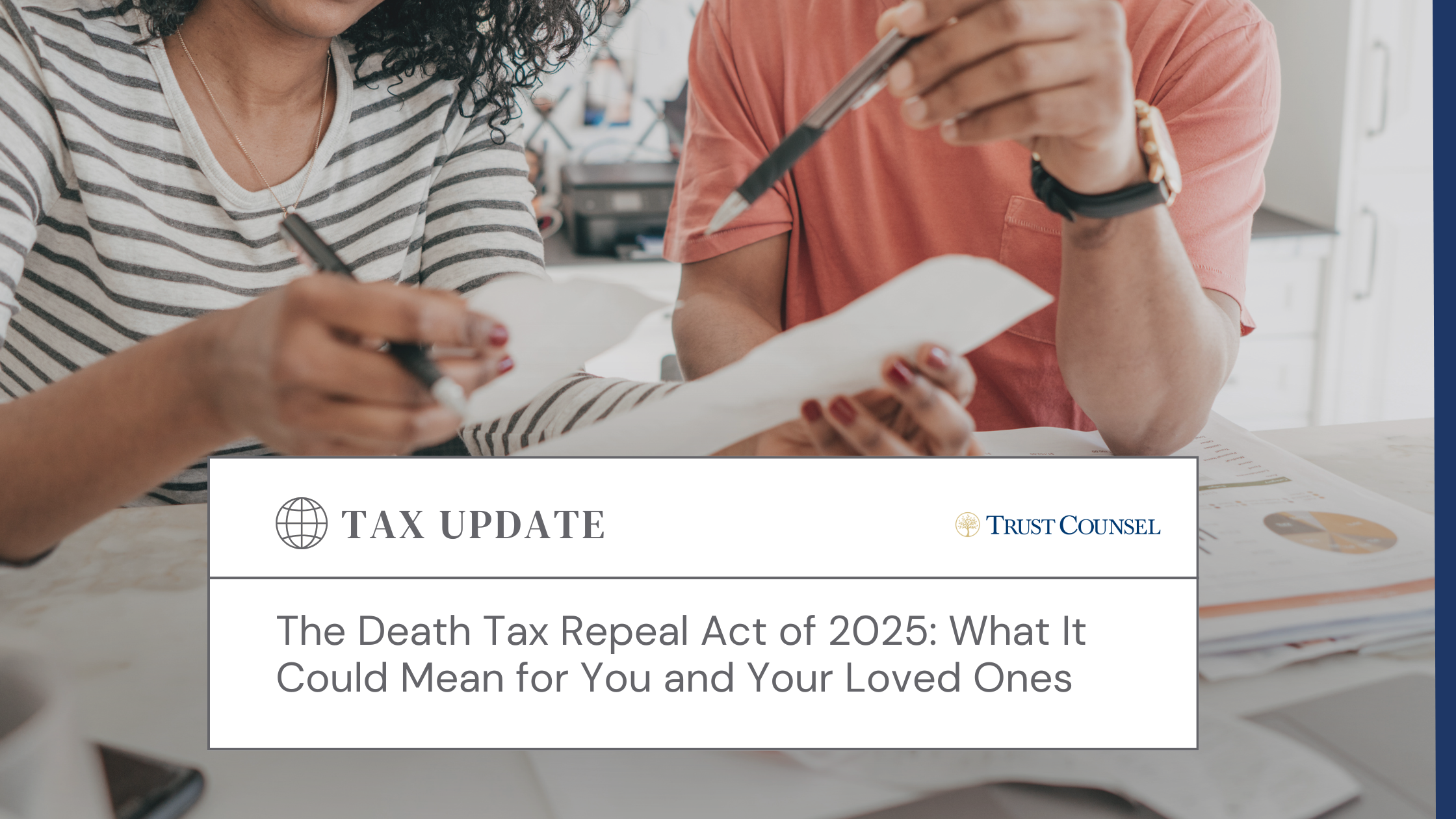
Donald Trump has proposed a radical tax reform agenda for his presidency. Part of this reform is his intention to repeal the estate tax. For some people, this will be a considerable change with significant repercussions. But, because more changes to the tax code are anticipated, high-net-worth families should consider what this change could mean for their estate plans.
The estate tax (aka the death tax) is a federal tax on the transfer of property in the estate of someone who has passed. Upon death, your estate’s taxable value is assessed and then taxed. There are many rules on when and how the estate tax can be taken, but Trump plans to repeal the estate tax altogether.
Comparatively, the estate tax is not a huge revenue producer for the IRS, and many believe the estate tax is baseless, while other forms of property transfers between family members are untaxed, such as property divisions as the result of divorce.
While many applaud the suggested repeal, it’s important to remember that lost revenue will be certainly be gained elsewhere. Though the estate tax may be abolished, Trump still plans on initiating a capital gains tax on any assets left to heirs over the $10 million threshold.
Some argue that the estate tax only affects the very wealthy. Indeed, the 2017 federal estate tax exemption is $5.49 million. Estates valued below that threshold will not be taxed. For families with significant wealth, steps should be taken to plan for a potential estate tax, even if the estate tax is repealed because it’s likely to return in the future, even if it is repealed now.
Basing estate plans on proposed tax reform is unwise. However, considering proposed tax changes as well as the changing political climate while planning your estate will help you make educated decisions. Regardless of the size of your estate, now is a great time to sit down and discuss your estate planning options with an Estate Planning Lawyer.
Proper planning for your estate means staying abreast of changing tax regulations and ensuring your estate plan minimizes its tax burden and protects the assets you will leave behind. Because tax regulations are not set in stone and change quite frequently, it’s important to work with an Estate Planning Lawyer to prepare for all eventualities.
And, of course estate planning is about so much more than just saving taxes, and even about so much more than just your financial estate. As your Estate Planning Lawyer, we see estate planning as about helping you make the very best personal, financial and legal decisions for your wealth, health and happiness throughout your lifetime and then being there for your loved one’s to minimize conflict, when you cannot be.





